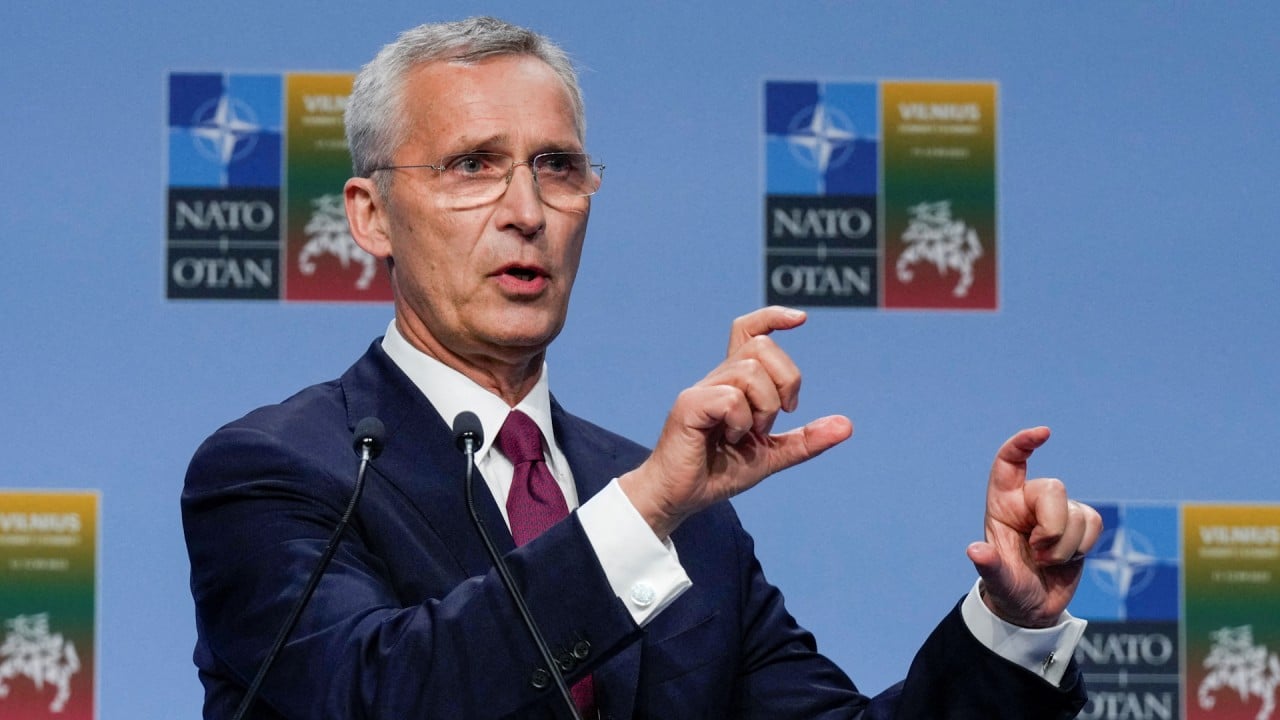
China and Russia must oppose Nato ‘threats’ to international law enforcement, Moscow’s top prosecutor says
- Russian Prosecutor General Igor Krasnov says members of the security alliance are creating conditions for fugitive ‘safe havens’
- He also says his office is working with Beijing to counter the West’s ‘growing influence’ in Mongolia
Russian Prosecutor General Igor Krasnov made the comments to Chinese Public Security Minister Wang Xiaohong on Thursday before ending his two-day trip to Beijing.
“These moves create the necessary conditions for the formation of safe havens to fugitives away from national justice.”
Krasnov ended his first trip to China on Thursday after meeting six top Chinese security, law enforcement and legal officials in a push for closer cooperation between the countries in areas ranging from cybersecurity and digital currency to extraditing criminal suspects.
Growing mistrust in the global supply chain and Western sanctions targeting Russian and Chinese officials have pushed the countries to work more closely in trade, diplomacy and regional security.
In a separate meeting with Chen Wenqing, the Communist Party Politburo member overseeing police, intelligence and law, Krasnov said his office had begun to promote cooperation between Moscow, Beijing and Ulaanbaatar to counter the West’s “growing influence” in Mongolia, according to the Russian state newspaper Rossiyskaya Gazeta.
Krasnov cited a Russian-drafted trilateral treaty presented to Ulaanbaatar on environmental protection cooperation to show Moscow’s increased engagement. However, he did not provide evidence for his claims of Western influence, and statements on Krasnov’s meetings from the Chinese government and state news agency Xinhua did not mention those claims.
According to Russian state newspaper Rossiyskaya Gazeta, Wang said: “Beijing is ready to provide practical support to Russia to work against the sabotage activities of non-governmental foreign organisations, foreign agents and other associations.”
The short readout of the meeting from Xinhua did not include this quote from Wang but said Wang promised to work with Moscow to safeguard “political security” and combat cross-border crimes.
The pledges were raised on Wednesday, when Krasnov met his counterpart Ying Yong in Beijing. They signed an agreement for their offices to share their experience tackling cybercrime, terrorism and corruption, the Russian state news agency Tass reported.
The top prosecutors also promised to discuss the illegal circulation of cryptocurrencies and money laundering next year.
When meeting China’s top judge Zhang Jun on Wednesday, Krasnov said Russia was interested in China’s internet courts and international chambers of commerce.
Internet courts in China focus on cases related to the web, including e-commerce, copyright and domain name disputes.
China’s Supreme People’s Court has also created commercial courts to decide cases about international trade because of the size of the Chinese market.
Before leaving China, Krasnov also discussed prison management and crime prevention with Chinese Justice Minister He Rong and anti-corruption efforts with Fu Kui, deputy secretary of the party’s powerful anti-graft body.


